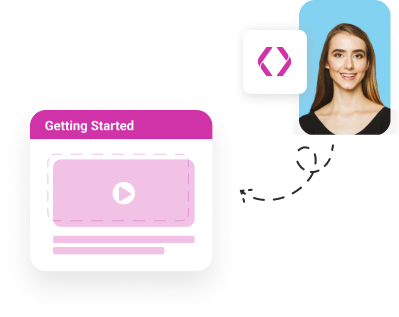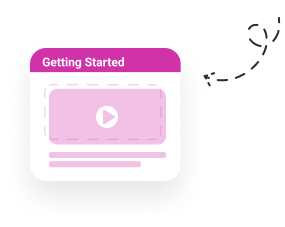Healthcare Organization Reimagines Collaboration Reviews

Media-savvy content creator, with a curiosity for all Salesforce experiences.
Collaboration centers are great for inviting and including many different teams to solve problems faster. The information gained from so many diverse groups allows the various groups to learn from each other’s mistakes and triumphs. The rewards of an e-collaboration center are high and work incredibly well in the Healthcare and Medical industries.
Keep reading as Titan share’s a use case regarding a global organization in the healthcare industry that successfully integrated Salesforce into its e-collaboration center seamlessly.
Medical Innovation Needed for the Health Organization
An international organization interested in global health and serving humanity needed a way to collaborate with hundreds of institutions worldwide to transfer agreements fast and effectively with their colleagues.
“Being a prestigious organization, many institutions want to sign up and help with our research programs. We need a way to manage these large volumes of requests“
Health Research Assistant
Reaching New Healthcare Heights with Titan
The Data Management team delivered a list of requirements to Titan for their review process.
Can your organization relate to any of these criteria?
The Original Salesforce for Healthcare Process
Research institutions that wanted to collaborate with the prestigious health organization found any contact and communication to be faster and less laborious. The health organization was starting to get inundated with requests from research facilities to collaborate with but needed help to cope with the data-heavy onboarding process.
Applicants would have to contact the health organization and request a lengthy and complex form to fill out. This Initiation form would need to be emailed back to the health organization with a batch of supporting documents from the research institution.
These documents would then need to be sent to a Regional Focal Point Reviewer for evaluation. The documents would only travel to the Global Focal Point reviewer for approval when an application was approved. If the application was rejected at any stage, the applicant would need to reenter the review process.
On top of this process, all data and documents had to be manually added to Salesforce.
“The application to join us as a collaboration center is long and time-consuming for our staff. We need a way to automate this process to do what we do best, focus on helping medical research.“
Public Health Advisor
Titan’s Panoramic View on Salesforce Solutions
Titan provided the health organization with a new process for allowing institutions to register on the collaboration center to start collaborative research.
The new digital process starts with a user from an institution anywhere in the world. This user navigates to their registered Salesforce account and activates an Initiation form created by Titan. This Salesforce Initiation form includes various engaging elements to gather all the details that an institution needs to provide to join the collaboration center before sending it for approval.
An Initiation Form Effectively Integrated with Salesforce
The Initiation form is found in Salesforce and includes data gathering elements and sections for a user to upload files that relate to their organization, such as:
- Institution Details
- Current Organizational Chart
- Constitutive Documents
- Roles and responsibilities of the relevant people from the organization.
- And a few more fields for data entry that the collaboration center will approve!
Easy User Interface for All Users
Filling out the Initiation form in Salesforce is easy with Titan’s range of engaging elements that include:
- Text Fields
- Drop-down Menus
- Data validation functionality that activates before pushing information to Salesforce
- Lookup Fields
- Checkboxes
- File Upload Elements
The Initiation form can also be saved as a draft at any time. The user applying to be part of the collaboration center can return to the Initiation form when ready and review the information that was filled out. They can then decide between a few options for their application, which is possible through a single click of a button:
- Cancel the Initiation form
- Save any updates or changes to the Initiation form
- Submit the form for approval with the health organization
Gently Up Skill Staff with Titan’s Intuitive Digital Processes
After the user applying to join the collaboration center submits the Initiation form for approval, an email is sent to the first approver from the health organization, the Regional Focal Point (RFP) reviewer for collaboration centers.
In Salesforce, the applicant will notice that their Initiation form is at the stage of Pending RFP Approval. The Initiation form is now locked, and this means that the applicant can only edit or make changes to the form once it is approved or sent back to them to edit.
“I like that Titan has allowed us to obtain a complete history of who has approved and rejected Initiation Forms at every point in the journey.“
Program Management Officer.
The RFP reviewer can now approve the Initiation form. However, unlike the applicant who filled out the form, the RFP has the extra permission to add a comment before choosing to approve or reject the application with a single click of a button.
Once evaluated by the RFP reviewer, the Initiation form is sent to the next stage of the review process, which is the Global Focal Point (GFP) for collaboration onboarding. The GFP reviewer receives the notification via email and can log into Salesforce to approve or reject the Initiation form that the RFP reviewer and applicant worked on. The GFP reviewer also has extra permissions configured to approve or reject the form with comments.
The GFP reviewer is the final assessor in the process. So if the GFP reviewer approves the Initiation form, it will be readily available and stored in Salesforce!
100% No Code Salesforce & Titan Document Generation
After completing a review process of approving an Initiation form for a new collaboration center for the health organization, Titan then goes the extra mile to convert the Initiation form into a new agreement.
When the Initiation form is approved, the applicant has access to a button to create a new agreement.
Titan’s Tailor-Made Document Solutions for Salesforce
In the agreement is an embedded form pre-filled with data from the initiation form and some new information pulled from Salesforce. The applicant will fill in any remaining information required for the agreement and save the document as a draft, which will be available in Salesforce. The applicant can now work on the agreement at any time directly from Salesforce with the correct information previously stored.
Once the applicant is happy with all the information in the agreement, they can submit it to the collaboration center on the health organization’s website for review before an internal approval process.
At this point, the contact person from the collaboration center receives an email directing them to the health organization’s Salesforce community-built website, where the reviewer can check the new agreement that was just sent to them. The reviewer can go ahead and evaluate all of the proposed details of the new agreement and agree to confirm that they have reviewed the proposal.
Keep up to Date with all Stages of your Review
The applicant now receives an email notification that an outside user in the collaboration center reviewed the Agreement form. At this point, another approval process starts with Regional and Global Focal Point reviewers, as described in the Initiation form review process.
However, unlike in the Initiation form process, when the GFP reviewer approves the Agreement form, the status of the agreement is updated to approved, and a document is generated and saved in BOX storage under a specific folder that was automatically created for the health organization.
Salesforce for Healthcare Results
In a nutshell, the staff at the health organization have been able to streamline their review processes for collaboration centers. At the same time, applicants from many industries find it much faster and more convenient to submit information to the health organization.
Overall, the health organization can onboard many more research institutions to their collaboration center, and this helps them create robust solutions for humanity smarter and faster.
Exclusive Salesforce Solutions for your Organization
Can you relate to this health organization? Do you need a Salesforce solution to speed up your review processes and workflows?
Then amplify your Salesforce experience with Titan and make your digital solutions a reality today. We hope to see you soon! Contact us by visiting:

Do you like Titan’s Use Case?
Don’t miss out on Salesforce solutions. Schedule a demo to get started with Titan today!


